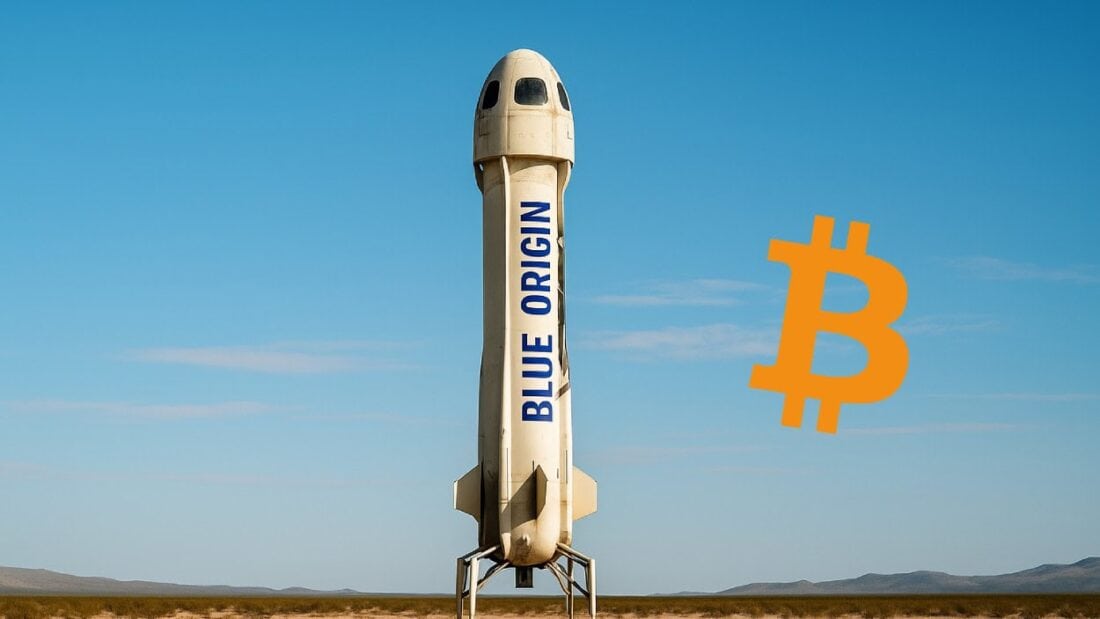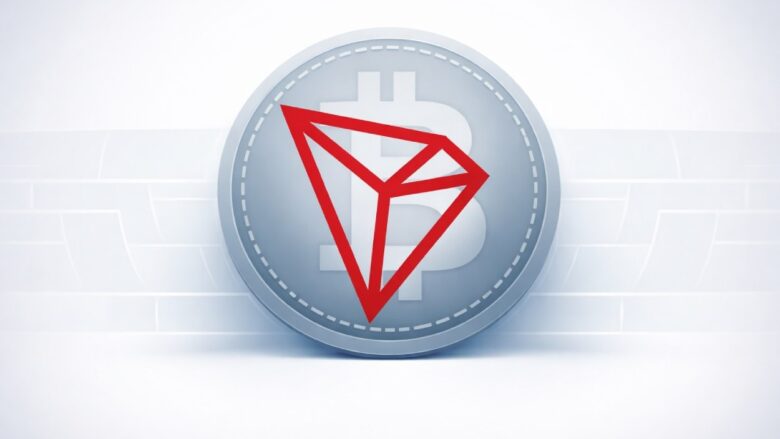Blue Origin, the space company founded by Jeff Bezos, now accepts major cryptocurrencies for booking suborbital flights on its New Shepard spacecraft.
Key Takeaways
- 1Blue Origin now allows customers to pay with Bitcoin, Ethereum, Solana, USDT, and USDC
- 2Crypto payments are supported through Shift4’s infrastructure using MetaMask and Coinbase wallets
- 3The move is part of broader adoption of crypto for high-end purchases like space travel
- 4Justin Sun’s earlier $28 million spaceflight payment was not made in crypto despite his blockchain ties
What Happened?
Blue Origin has officially added cryptocurrency as a payment method for space tourism. Starting now, customers can use popular coins like Bitcoin, Ethereum, Solana, USDT, and USDC to reserve seats aboard its New Shepard spacecraft. This new option is powered by Shift4 Payments, a fintech firm whose infrastructure enables seamless crypto transactions via digital wallets like MetaMask and Coinbase.
Blue Origin Joins the Crypto Payment Revolution
This marks a major milestone for crypto adoption beyond traditional finance. With crypto’s market cap recently surpassing $4 trillion, high-value industries are beginning to embrace digital assets. Blue Origin’s move aligns with this trend, offering tech-savvy space tourists a new way to pay.
- Shift4’s Head of Crypto, Alex Wilson, emphasized the growing role of stablecoins and digital assets in payments, stating, “Crypto is now a $4 trillion asset class.”
- Wilson added, “We believe crypto and stablecoins are going to become an increasingly popular way for consumers to pay, particularly for high-end purchases.”
Blue Origin’s acceptance of stablecoins like USDT and USDC also signals an interest in more price-stable crypto options, especially for transactions that require significant deposits. This includes Blue Origin’s spaceflights, which require a $150,000 deposit, though full pricing details are still under wraps.
How This Impacts Space Tourists
This crypto-friendly policy simplifies access for the large and growing global population of digital asset holders. Users can now connect familiar crypto wallets and pay directly, streamlining the booking experience.
However, potential travelers should be aware that crypto payments may trigger tax liabilities, depending on local laws. So while the payment method is easier, it may come with accounting challenges.
The new system is now live and applies to upcoming commercial flights on the New Shepard vehicle, making it one of the most high-profile uses of crypto in luxury consumer experiences.
Comparison With SpaceX and the Crypto Landscape
SpaceX, the other major player in private spaceflight, has not opened crypto payments for its services. However, reports estimate that SpaceX holds around 8,285 Bitcoins, with a market value of nearly $996 million, indicating strong institutional interest.
Blue Origin’s approach stands in contrast. Instead of simply holding Bitcoin as a reserve, the company is inviting crypto as an active part of its payment system.
Legacy of Justin Sun’s Flight
Crypto billionaire Justin Sun, founder of TRON, paid $28 million for the first seat on a Blue Origin flight in 2021. While he completed his spaceflight just last week, his payment was made in fiat, not cryptocurrency. This highlights the symbolic importance of Blue Origin’s latest move, which now fully embraces the crypto payment method.
CoinLaw’s Takeaway
I think this is a big deal for both space travel and the crypto community. Blue Origin is showing that digital assets are not just for trading or speculation. They can be used for real, high-value purchases, and that’s a massive signal of legitimacy. I also love that they included stablecoins in the mix. That’s smart, especially for people worried about Bitcoin’s price swings. It’s not just a gimmick. This could set a standard for other premium services, even outside of space.


































































